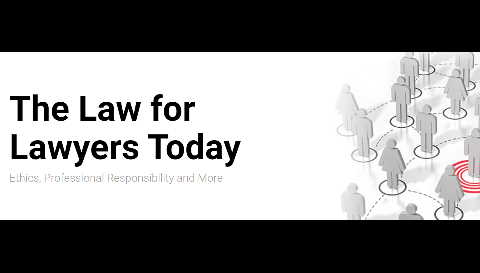
Tis the season for New Year’s risk resolutions and advice. Karen Rubin offers a nice summary of this ilk with: “Five ways to stay out of ethics trouble in 2020” —
- “Bill carefully. Billing was big news at the end of last year, with reports about the lawyer who failed to keep contemporaneous time records and was suspended for overcharging clients based on her reconstructions of the work. In addition, there was the federal suit filed early in the year, with the allegation that a firm’s “block billing” obscured overcharges. (The plaintiff voluntarily dismissed the case two weeks after filing it.) There are lots of ethics issues relating to legal fees in general — dividing them with other lawyers; whether you must deposit them in an IOLTA or IOTA; what to do in case of a fee dispute with a client — but everything depends on the core notions of charging a reasonable fee, communicating the basis of that fee to the client, and keeping the client informed about the bill as you go.
- “Watch for conflicts. Getting disqualified is never a good thing, but conflicts of interest led to just that result in a couple cases providing some important take-aways. For instance, in the government context, the DQ of an entire prosecutor’s office based on the chief prosecutor’s previous representation of the defendant while in private practice underscored the role that imputation plays under Model Rule 1.10 and 1.11 in spreading the “taint” of a disqualifying conflict. And a lawyer who represented a massage parlor in the sale of the business was DQ’d in a suit over the deal because his previous representation of the buyer was “substantially related” to his work for the seller under the state’s version of Model Rule 1.9.”
- “Keep it confidential. Technology played a role in two situations last year that spotlighted confidentiality concerns. In January, lawyers for President Trump’s former campaign chairman Paul Manafort failed to redact a document properly, leading to disclosure of the hidden contents when it was filed with the court. And a lawyer’s Facebook posts that disclosed enough information about a client that she recognized herself resulted in a public reprimand for violating the duty of confidentiality. The place where social media, technology and our confidentiality obligations intersect is a place to be cautious.”
